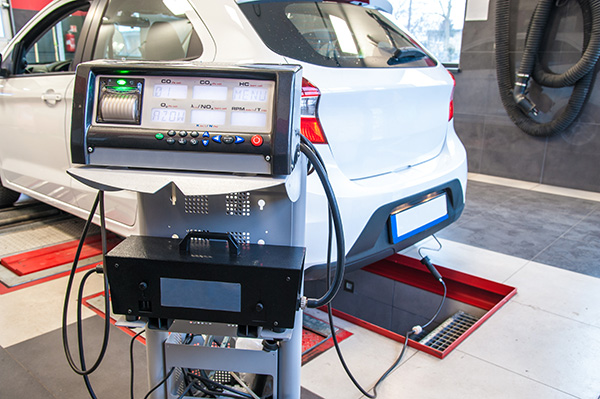
If your car has recently failed the smog test, you're probably feeling a mix of frustration and concern. A smog test failure isn't just a nuisance. It can indicate underlying issues with your vehicle that need immediate attention. Whether it's due to high emissions or malfunctioning components, addressing the problem promptly is crucial. So, what should you do when faced with this predicament? We have prepared a list of the essential repairs and steps you need to take after a smog test failure.
Smog Test Failure
Before we get into the specifics of repairs, it's important to understand why vehicles fail smog tests in the first place. Smog tests are designed to measure the amount of pollutants your car emits. These tests typically check for hydrocarbons (HC), carbon monoxide (CO), and nitrogen oxides (NOx). If your car emits too much of any of these pollutants, it will fail the test. Common reasons for failure include issues with the engine, fuel system, ignition system, and exhaust components.
Common Repairs Needed After a Smog Test Failure
When your car fails a smog test, several potential repairs might be needed to bring it back into compliance. Here are the most common fixes:
1. Oxygen Sensor Replacement
The oxygen sensor measures the amount of oxygen in your car's exhaust gasses. If it's not functioning correctly, it can cause your car to run inefficiently, increasing emissions. Replacing a faulty oxygen sensor can often resolve emission issues and improve fuel efficiency.
2. Catalytic Converter Repair or Replacement
The catalytic converter is a critical component in reducing harmful emissions. If it's damaged or not working correctly, your car will likely fail a smog test. Repairing or replacing the catalytic converter can significantly reduce your vehicle's emissions and help you pass the test.
3. Fuel System Repairs
Issues with the fuel system, such as a malfunctioning fuel injector or a dirty fuel filter, can increase emissions. Cleaning or replacing these components ensures that your engine is receiving the correct fuel mixture, reducing pollutants.
4. Ignition System Repairs
The ignition system, including spark plugs and ignition coils, plays a vital role in the combustion process. Worn or faulty components can lead to incomplete combustion, resulting in higher emissions. Replacing spark plugs and ignition coils can help your engine run more cleanly and efficiently.
5. Exhaust System Repairs
Leaks or damage in the exhaust system can also lead to a smog test failure. The exhaust system needs to be airtight to properly channel emissions through the catalytic converter. Repairing leaks and ensuring the system is in good condition is essential for passing the test.
Steps to Take After a Smog Test Failure
If your vehicle fails a smog test, don't panic. Here are the steps you should follow to address the issue:
Get a Diagnostic Check
A diagnostic check can pinpoint the exact cause of the smog test failure. Many auto repair shops offer this service, and it can save you time and money by identifying the specific repairs needed.
Prioritize Repairs
Once you have a diagnostic report, prioritize the repairs based on severity and cost. Focus on the most critical issues that directly affect emissions first.
Perform Regular Maintenance
Regular maintenance, such as oil changes, air filter replacements, and engine tune-ups, can prevent smog test failures. Keeping your vehicle in good condition is key to reducing emissions and passing future tests.
Preventative Measures for Future Smog Tests
Passing a smog test isn't just about fixing problems when they arise; it's also about maintaining your vehicle to prevent future issues. Here are some preventative measures to keep in mind:
Use High-Quality Fuel
Using high-quality fuel can improve engine performance and reduce emissions. Opt for fuel that contains detergents to keep your engine clean.
Follow the Manufacturer's Maintenance Schedule
Adhering to your vehicle's maintenance schedule is crucial for long-term health. Regular check-ups can catch potential issues before they become major problems.
Keep an Eye on the Check Engine Light
Never ignore the check engine light. If it comes on, get it checked out immediately to avoid bigger issues down the line.
Struggling with a failed smog test? H B Auto & AC offers top-notch repair services to address all your vehicle's emission issues. Book your service today and drive with confidence!